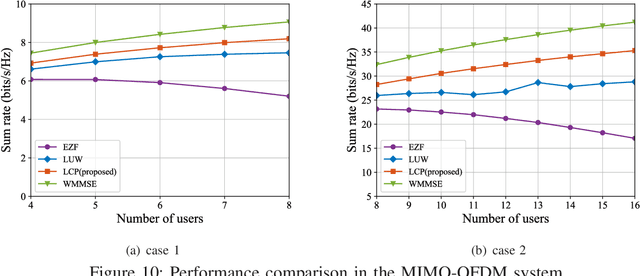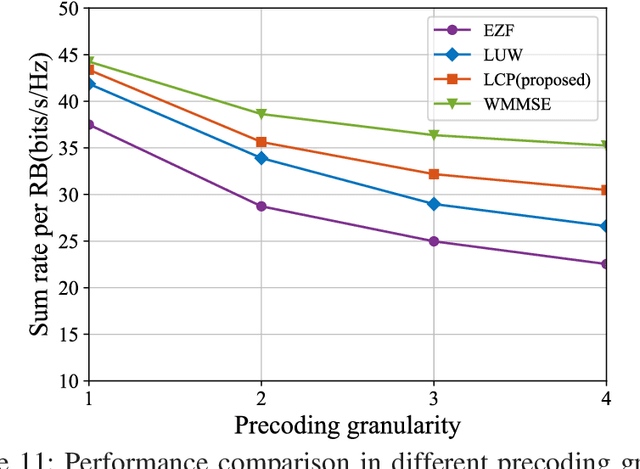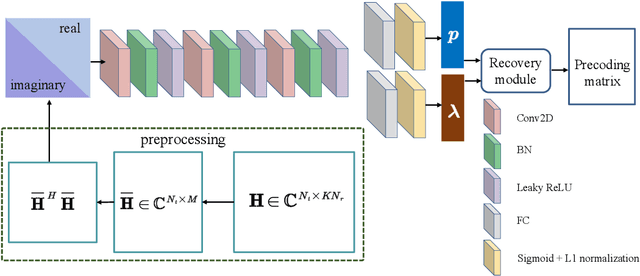A Deep Learning-Based Framework for Low Complexity Multi-User MIMO Precoding Design
Paper and Code
Jul 08, 2022



Using precoding to suppress multi-user interference is a well-known technique to improve spectra efficiency in multiuser multiple-input multiple-output (MU-MIMO) systems, and the pursuit of high performance and low complexity precoding method has been the focus in the last decade. The traditional algorithms including the zero-forcing (ZF) algorithm and the weighted minimum mean square error (WMMSE) algorithm failed to achieve a satisfactory trade-off between complexity and performance. In this paper, leveraging on the power of deep learning, we propose a low-complexity precoding design framework for MU-MIMO systems. The key idea is to transform the MIMO precoding problem into the multiple-input single-output precoding problem, where the optimal precoding structure can be obtained in closed-form. A customized deep neural network is designed to fit the mapping from the channels to the precoding matrix. In addition, the technique of input dimensionality reduction, network pruning, and recovery module compression are used to further improve the computational efficiency. Furthermore, the extension to the practical MIMO orthogonal frequency-division multiplexing (MIMO-OFDM) system is studied. Simulation results show that the proposed low-complexity precoding scheme achieves similar performance as the WMMSE algorithm with very low computational complexity.
 Add to Chrome
Add to Chrome Add to Firefox
Add to Firefox Add to Edge
Add to Edge